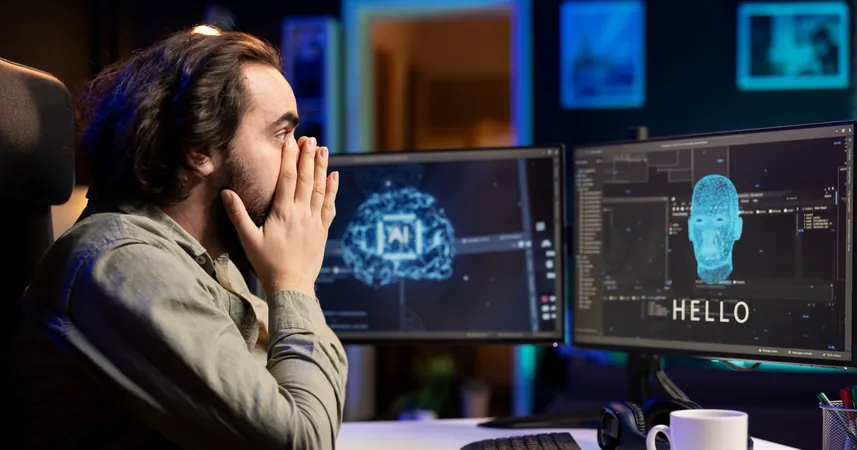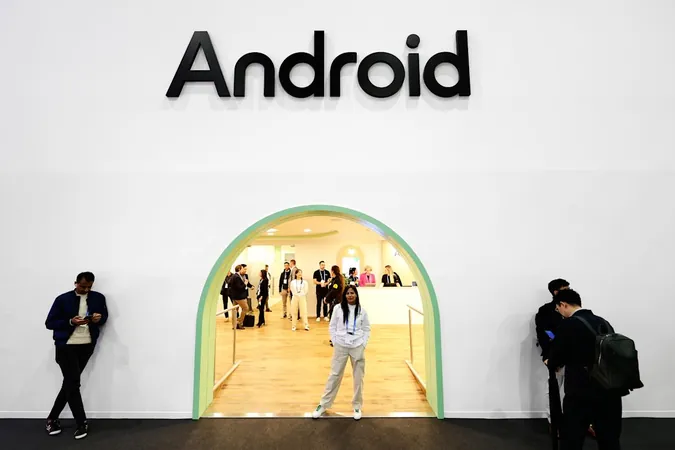
The Dark Side of Humanlike AI: Why Our Chatbots Are More Harmful Than Helpful
2025-08-28
Author: Noah
Revealing the Dangers of AI Companions
Elon Musk's xAI has launched Grok, touted as the "smartest AI in the world," complete with a new anthropomorphic update: Ani, an anime girlfriend, and a boyfriend inspired by romantic fantasy hits like Twilight and 50 Shades of Grey. But as summer tech updates roll out from xAI and OpenAI, are we moving towards a new era of AI, or are we lost in a web of false intimacy?
The Illusion of Companionship
Both tech giants claim to be on a mission to create AI for the greater good—promising to enhance human understanding and benefit all of humanity. However, their choice to launch chatbots as "companions"—friends, lovers, or therapists—has sparked a critical discussion among AI researchers and ethicists.
The Anthropomorphism Trap
At the heart of the issue lies anthropomorphism—the tendency to project human traits onto non-human entities. As cognitive scientist Pascal Boyer notes, our brains are wired to respond to cues that make machines feel human. When AI simulates conversation and emotion, users become emotionally attached, perceiving these systems as more than just machines.
Consequences of Emotional Attachments
Such design choices can lead to troubling outcomes. From fostering unhealthy relationships, where users may even 'marry' their AI companions, to cases of self-harm resulting from broken attachments, the stakes are alarmingly high. Some individuals react to AI as they would a human, leading to abusive behavior when those expectations aren't reciprocated.
A Call for De-Anthropomorphization
Experts like American philosopher Daniel Dennett argue that our only hope lies in stripping AI of its deceptive humanity. However, such attempts are complicated by the strong emotional ties users have formed with these cleverly designed personas. When OpenAI replaced its previous chatbot with a new version, users expressed genuine grief over losing its unique character.
An Urgent Moment of Reckoning
The truth is, the type of anthropomorphic design we see today plays into our natural instincts and creates dangerous illusions. As AI continues to mimic human behavior, we risk inviting significant psychological and emotional challenges. If AI ever achieves consciousness, our current design choices could lead to an unprecedented scale of suffering.
Time to Redefine AI Interaction
The real threat isn't a future where machines dominate us. The danger is happening right now, stemming from our misguided belief that these systems are akin to us. With AI giants promising a brighter future, we must question whether these anthropomorphic designs can actually serve humanity's interests. It's crucial to initiate the process of de-anthropomorphizing these systems to ensure they become tools that genuinely enhance human life and understanding.









 Brasil (PT)
Brasil (PT)
 Canada (EN)
Canada (EN)
 Chile (ES)
Chile (ES)
 Česko (CS)
Česko (CS)
 대한민국 (KO)
대한민국 (KO)
 España (ES)
España (ES)
 France (FR)
France (FR)
 Hong Kong (EN)
Hong Kong (EN)
 Italia (IT)
Italia (IT)
 日本 (JA)
日本 (JA)
 Magyarország (HU)
Magyarország (HU)
 Norge (NO)
Norge (NO)
 Polska (PL)
Polska (PL)
 Schweiz (DE)
Schweiz (DE)
 Singapore (EN)
Singapore (EN)
 Sverige (SV)
Sverige (SV)
 Suomi (FI)
Suomi (FI)
 Türkiye (TR)
Türkiye (TR)
 الإمارات العربية المتحدة (AR)
الإمارات العربية المتحدة (AR)